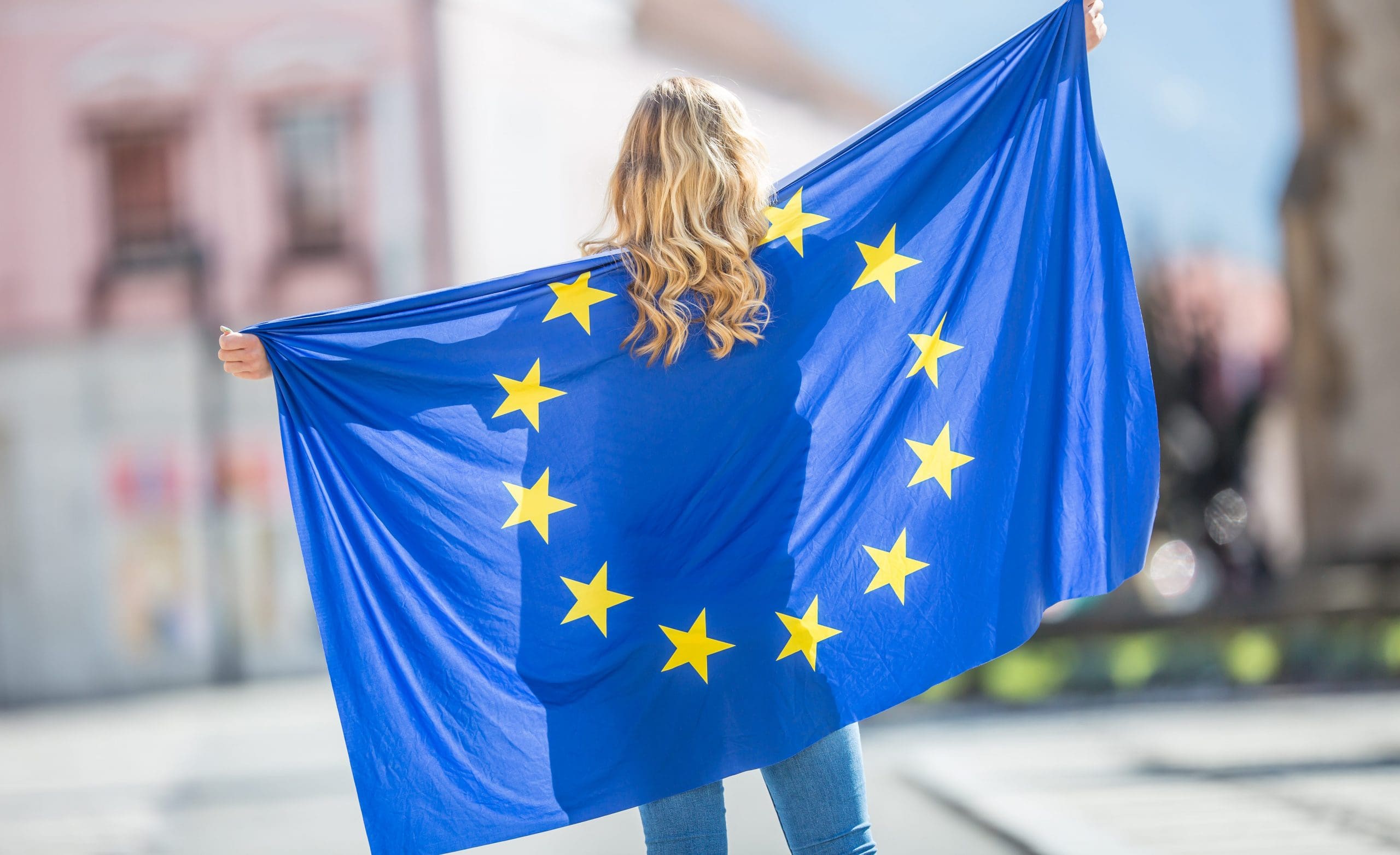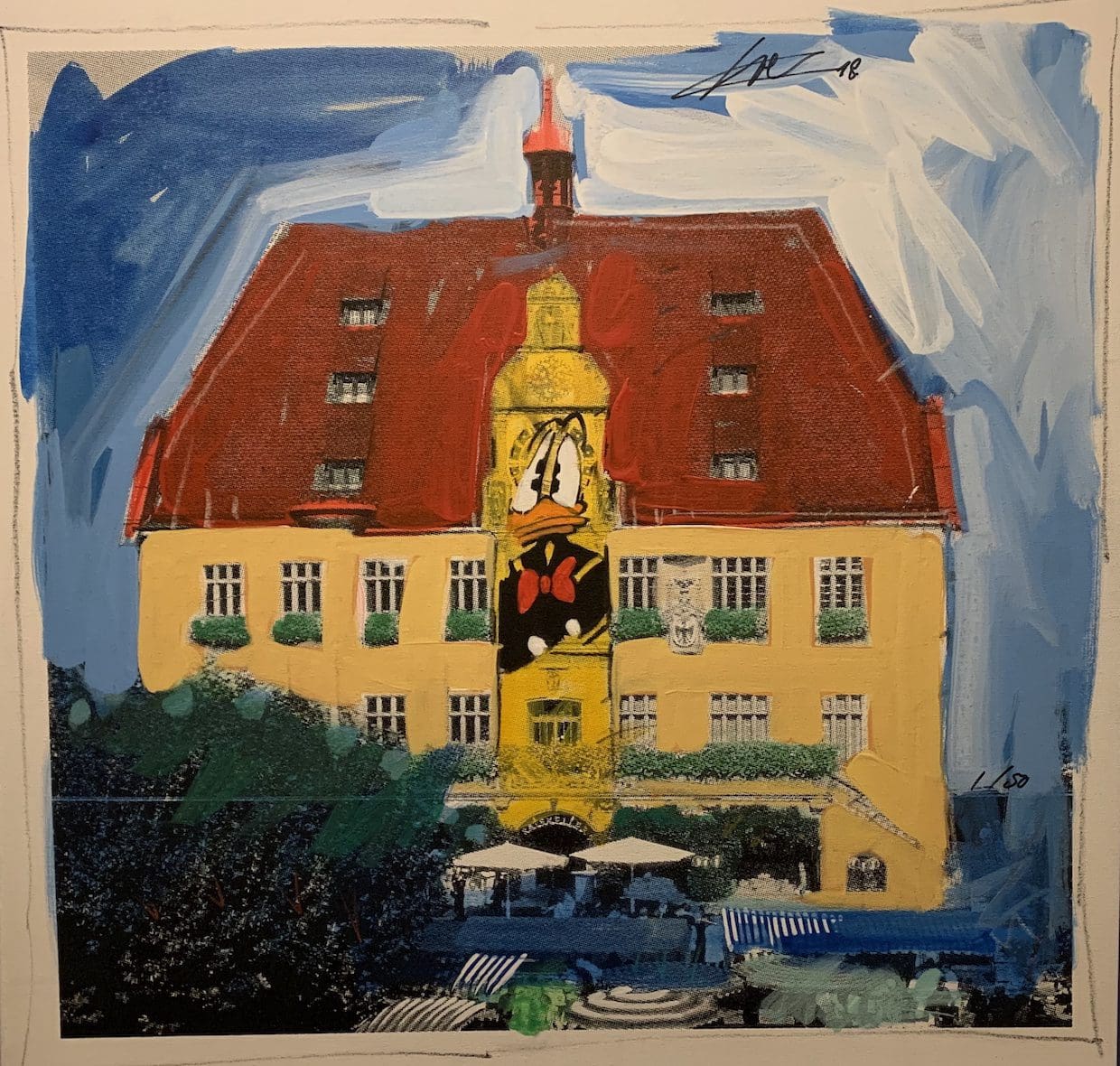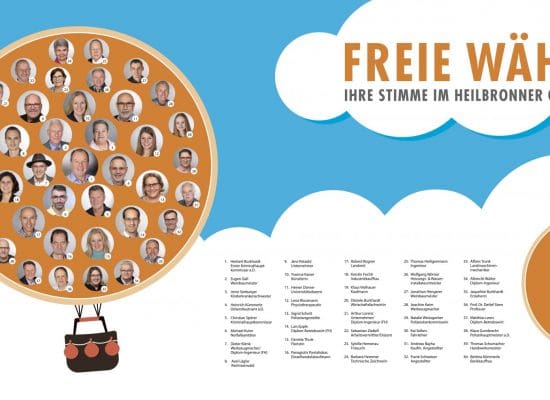Post photo: Girl with European flag | © Shutterstock
It is the first Europe Day in 31 years that my better half and I have not been involved in organizing the Meeting point Europe are busy; that's why getting up this morning was very unusual, and we both could feel a certain emptiness. Even if we are tied to a few video conferences today, this lack of a celebration of international understanding is a source of food for thought.
That's why I'm also writing today between the conferences, which all deal with the topic of "Europe Day" very differently, about the Europe Days of today's two Europes, namely the Council of Europe and the European Union. In order not to overload the whole thing, I leave out NATO (April 4th) and the United Nations (October 24th).
Regular readers of my blog will find that I have been looking at the topic of “Europe Day” from a wide variety of perspectives for the past 15 years; the first corresponding contribution should probably be from the year 2006 come.
The first real Europe Day, because it was also perceived by the entire citizenry of Europe, was May 5th, which referred to the founding of the Council of Europe in Strasbourg on May 5th, 1949. Originally, however, Europe Day was set for the second Wednesday in March by the European community organization and was never very popular.
With that of the French Foreign Minister Robert Schuman In addition to the speech held on May 9, 1950, which initiated today's European Union, another day was added that could also and with full justification be celebrated as Europe Day.
In 1965, the representatives of the Council of Europe and the then European Communities, which came into being with the "Merger Agreement" in 1965, agreed on May 5th as the common Europe Day of the two Europes. The rationale at the time was very simple as it gave precedence to the Europe Day of Greater Europe.
For more than 20 years, May 5th was then started as Europe Day throughout Europe, but as far as I know it never achieved the status of a public holiday.
As Federal President in 1985 Richard von Weizsacker officially recognized May 8, 1945 not only as the day of surrender and defeat for Germany, but also as the day of Germany's liberation from Nazi rule, another fundamental change occurred in Europe, which resulted in the first Schengen Agreement , mostly moved Europeans to want to change the Treaties of Rome and also set May 9th as the new Europe Day, which was then officially celebrated as such for the first time in 1986.
For me, however, the beginning of perestroika also belongs to the Mikhail Gorbachev 1986, because 40 years after the end of the war in Europe, Europe as a whole had reached a completely new quality with Weizsäcker's speech and was beginning to shake off the last remaining totalitarian thoughts.
Bearing in mind that yesterday and today, May 9, 2020, many Europeans commemorate the end of the war and the loss of people in Europe, I remind all of us that although World War II ended in Europe on May 8, Hiroshima on August 6, 1945 and Nagasaki on August 9, 1945 reached a completely new quality and only slowly came to an end with the surrender of Japan on September 2, 1945 worldwide with a total of over 55 million deaths; and yet there were further expulsions, resettlement, murder and manslaughter even after that. In Europe alone Germans, Poles, Cossacks and Jews were affected.
But one thing is certain, you cannot commemorate May 9th as Europe Day without May 8th, the end of Nazi terror in Europe. Not only had that Konrad Adenauer, Jean Monnet and Robert Schuman recognized, but also Richard von Weizsacker, May 8, 1985 a groundbreaking speech for Europe kept coming out too Mikhail Gorbachev draw the right conclusions.
It is also interesting that even May 9 is not a public holiday in Europe and, if you look at the latest developments in the European Union, it will probably not be anytime soon.
The two Europe Days represent two different models of Europe to this day, and the attempts by self-confessed Europeans to combine these two days into one Europe Week, which would incidentally be a very European solution, has only been successful in some places in Europe, such as in Heilbronn to this day , where attempts have been made for years to link the European meeting point with other activities, such as B. one Mayor's reception for people from Heilbronn with immigration history, information stands, competitions, Europe rallies or a rally for Europe! on Kiliansplatz and thus filled the Europe Week with life for all citizens of the Union.
Today, on this special Europe Day, we should all think about what kind of Europe we actually want; and there is no question that it will work without a common Europe.
The question can be phrased very simply as follows. Do we want a Europe of May 5th, i.e. a loose federation of states that only agrees on minimal solutions, if at all, and then only implements them in national measures when the weather is good and then suspends them again at the first opportunity?
Or do we want a Europe of May 9th that is aware of its responsibility (May 8th), i.e. a European federal state?
In view of the challenges we are facing today, such as pandemics, global warming, increased migration and the aging of our societies, we see that the “hybrid solution” achieved so far, which is neither fish nor flesh, does not and cannot work.
And the eternal assertion of the institutionalists among us Europeans that ultimately and quite logically the European federal state can be reached in small steps, can always be said after more than 70 years, when most people can no longer remember why they started walking in the first place less convincing.
On the other hand, the age-old admonitions of the constitutionalists among us Europeans are getting louder and louder, saying that we Union citizens, with or without our representatives, must regain the initiative and help democracy and Europe, and thus all people, to their very own rights, otherwise we will win again the nationalists and in their wake the totalitarians up to the racists.
Today's May 9th is an invitation not only to make this day a pan-European holiday, but also to demand that our people's representatives set up a European convention in which civil society is significantly involved. In addition, we Europeans must once again – after 1945 and 1985 – recognize our own responsibility and clearly reject all anti-European efforts!
Jean Asselborn, the longest-serving EU Foreign Minister, is absolutely right, the inner-European borders must finally fall today, May 9, 2020 - and I would add, this also forever!
The die-hard Seehofers of this world destroy more in a few weeks than all rational politicians can build together in decades!
And what Konrad Adenauer as well as Richard von Weizsacker have already built up with great effort, our current players throw in their butts again.
"For the idea of humanity, when purged of all sentimentality, has the very serious consequence that in one form or another men must assume responsibility for all crimes committed by men and that all nations share the onus of evil committed by all others. Shame at being a human being is the purely individual and still non-political expression of this insight.”
Hannah Arendt, Organized Guilt and Universal Responsibility (1948)







